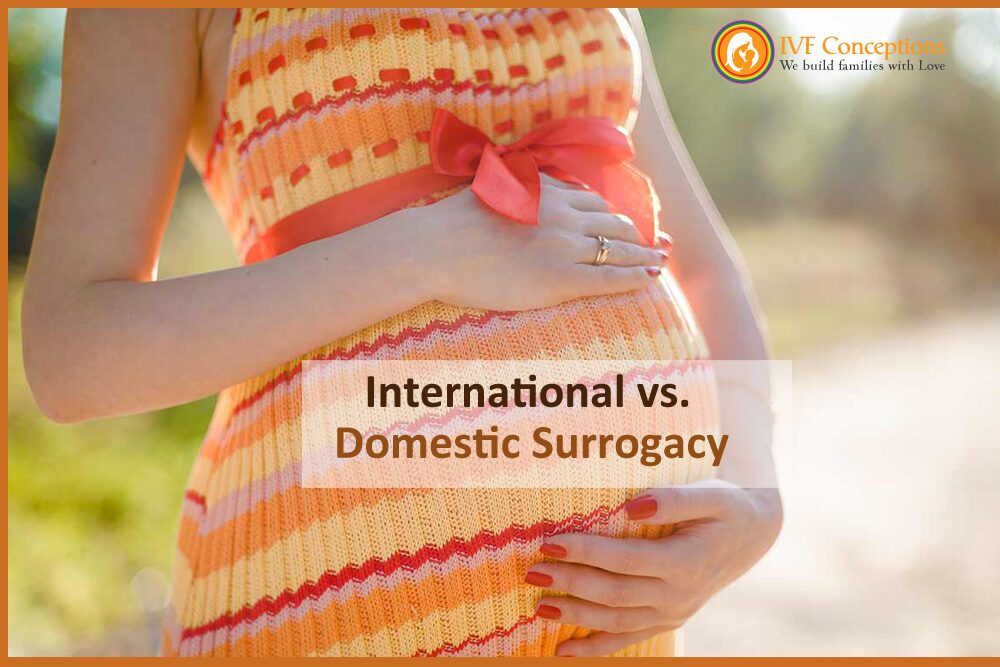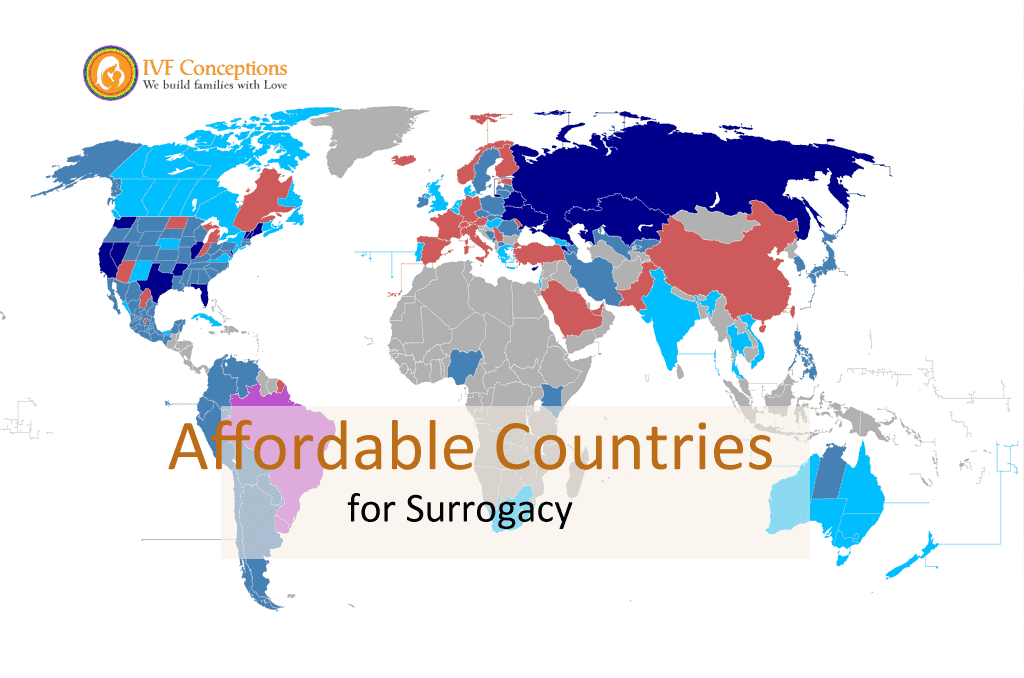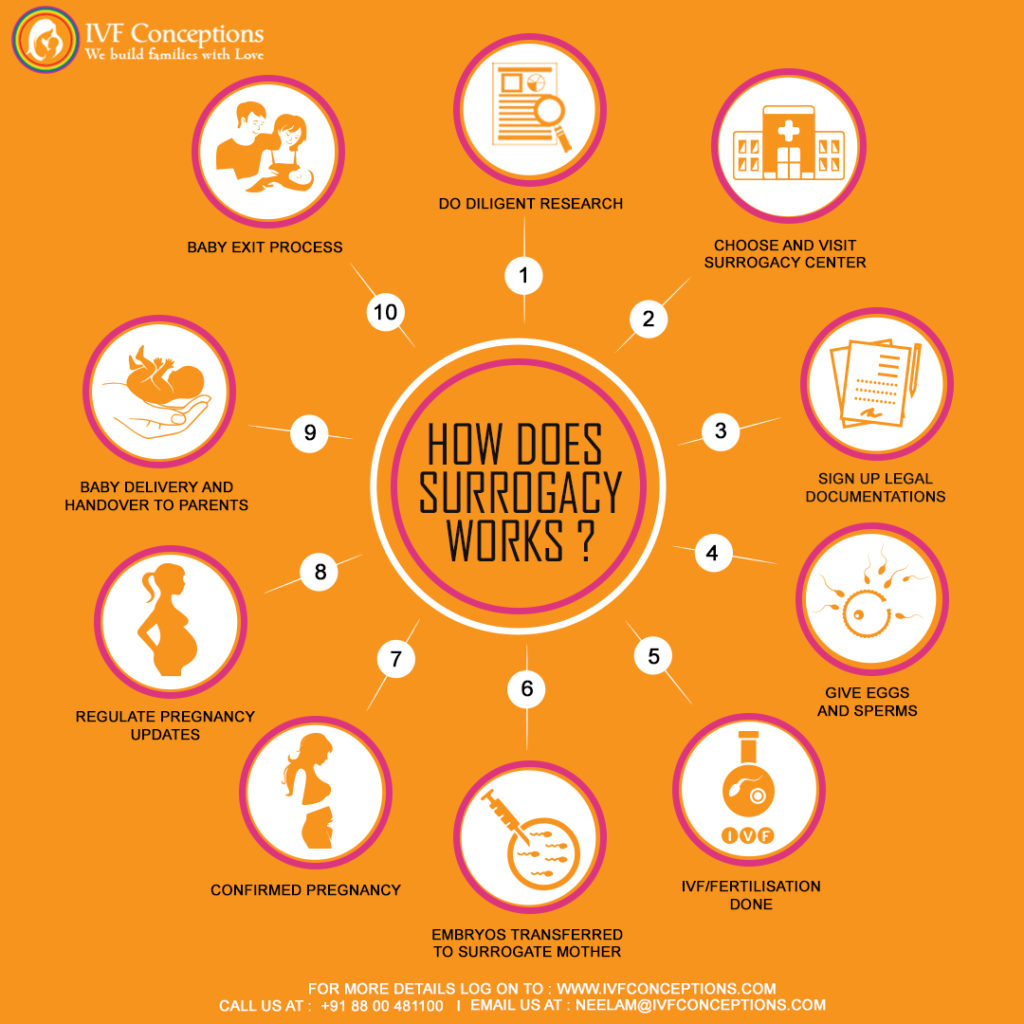Things to Know Before Planning for Surrogacy: A Complete Guide for Intended Parents

Surrogacy can be a life-changing opportunity for individuals and couples who dream of becoming parents but are unable to conceive or carry a pregnancy on their own. However, before embarking on the surrogacy journey, it’s important to fully understand the process, costs, legalities, and emotional aspects.
This comprehensive guide covers everything you need to know before planning for surrogacy, helping you make informed decisions for your family.
What is Surrogacy?
Surrogacy is an arrangement where a woman (the surrogate) agrees to carry and deliver a child for another person or couple (the intended parents). There are two main types of surrogacy:
- Traditional Surrogacy: The surrogate’s egg is fertilized with the intended father’s sperm, making her the biological mother.
- Gestational Surrogacy: The surrogate carries an embryo created through IVF using the intended parents’ or donors’ egg and sperm. The surrogate has no biological connection to the child.
Gestational surrogacy is the most common form used today due to its legal and emotional clarity.
Begin your surrogacy journey with IVF Conceptions today!
Mobile: +91-8800481100 ( WhatsApp, Line, Viber)
Email: neelam@ivfconceptions.com

Key Things to Know Before Planning for Surrogacy
1. Surrogacy Laws Vary by Country and State
One of the most important factors to consider is the legal framework surrounding surrogacy. Surrogacy laws differ significantly depending on the country or state where the surrogacy takes place. Some regions, like the US (in certain states), Canada, and Ukraine, allow surrogacy with well-established legal protections for intended parents and surrogates. Other countries, like Germany and France, have strict restrictions or bans on surrogacy altogether.
Before making any decisions, consult with a legal expert in your jurisdiction who specializes in surrogacy law to ensure that you are following all legal requirements.
2. Financial Considerations
Surrogacy is a significant financial commitment. The total cost of surrogacy can vary depending on several factors, including the country where the surrogacy takes place, agency fees, surrogate compensation, medical expenses, and legal fees. In countries like the US, the total cost can range from $90,000 to $150,000, whereas surrogacy in countries like Georgia or Ukraine may be more affordable, ranging from $40,000 to $60,000.
It’s essential to create a clear budget and plan for all potential expenses. These may include:
- IVF costs
- Surrogate compensation
- Legal fees for contracts and parental rights
- Health insurance for the surrogate
- Travel expenses (if international surrogacy)
3. Choosing the Right Surrogacy Agency
Working with a reputable surrogacy agency is crucial for ensuring a smooth process. The agency will help match you with a surrogate, handle all medical and legal matters, and provide emotional support throughout the journey.
When selecting an agency, consider the following:
- Experience and Success Rates: How many successful surrogacies have they facilitated?
- Transparency: Are the fees and services clearly outlined?
- Support Services: Does the agency offer counseling and support for both intended parents and surrogates?
You should also read reviews and testimonials from other intended parents to gauge the agency’s reliability.
4. Surrogate Screening and Matching Process
Surrogates undergo extensive medical, psychological, and legal screening before being approved to carry a pregnancy. This ensures that the surrogate is physically and emotionally prepared for the surrogacy journey.
When choosing a surrogate, intended parents should consider:
- Medical History: Does the surrogate have a history of healthy pregnancies?
- Emotional Readiness: Is she emotionally prepared for the experience and capable of relinquishing the child to the intended parents after birth?
- Compatibility: Do both parties agree on expectations regarding communication, pregnancy decisions, and the birth plan?
A good surrogacy agency will ensure that all parties are a good match before moving forward.
5. Medical Aspects of Surrogacy
Surrogacy often begins with IVF, where eggs from the intended mother or an egg donor are fertilized with sperm from the intended father or a sperm donor. The embryos are then implanted into the surrogate’s uterus.
It’s important to work with an experienced fertility clinic that specializes in IVF and surrogacy to ensure the best possible success rates. Factors such as egg and sperm quality, the health of the surrogate, and proper timing can affect the outcome.
Who should go through the process of surrogacy?
So, who should go through the process of surrogacy? Surrogacy can be a matter of choice or of a need. Following are the conditions in which the intended parents can go through the process of surrogacy –
- Same-Sex Couples – Gay couples’ surrogacy is an option in which a man uses surrogacy by donating their sperm to have their own child. They are taking the help of donated eggs and surrogate mothers to have a biologically related child.
- Advance age of mothers -In these cases where the female partner’s age is higher, carrying the pregnancy is riskier because carrying a baby may not be safer for the child or the mother. So, a woman in a higher age group can opt for gestational surrogacy to have a child of her own.
- Life-threatening conditions – There are certain medical factors that may make carrying the child too risky for the woman or child. Placenta Accreta is one of them.
- Unexplained infertility – Sometimes the patient has to go through 4 or 5 rounds of IVF cycles and still can’t carry a child either. In these cases where pregnant women are consistently struggling with miscarriages, gestational surrogacy can be a solution.
 Emotional Aspects of Surrogacy
Emotional Aspects of Surrogacy
Surrogacy is not just a medical and legal process—it’s also an emotional journey. Both intended parents and surrogates go through a range of emotions, from excitement to anxiety. Here’s how to manage the emotional aspects:
1. Emotional Support for Intended Parents
The surrogacy process can be filled with emotional ups and downs, from waiting for pregnancy confirmation to navigating the legal hurdles after birth. It’s important to have a strong support system of family, friends, or even professional counselors who understand what you’re going through.
Some common emotional challenges include:
- The feeling of loss for intended mothers who cannot carry the pregnancy themselves.
- Anxiety about the surrogate’s health and the pregnancy outcome.
- Bonding concerns with the child, especially for fathers or same-sex couples who aren’t biologically related to the baby.
2. Emotional Support for Surrogates
Surrogates also face unique emotional challenges. Although they willingly choose to carry a child for another family, they may still experience attachment to the pregnancy. A good surrogacy agency provides emotional counseling to ensure surrogates are mentally and emotionally prepared for the journey and the eventual transfer of the child to the intended parents.

Recent Trends in International Surrogacy and Reproductive Tourism
Reproductive tourism is the trend among infertility patients when they opt to cross international boundaries to access reproductive technologies. The global commercial surrogacy industry is estimated to be worth around $6 billion annually.
In India, surrogacy could be worth about $400 million annually, produced from the approximately 3,000 specialty clinics in the country. However, the banning of foreign surrogacy in India has dropped the number of international couples seeking surrogacy in India.
But they have other options to follow like- Ukraine and Georgia. For single males, surrogacy in Colombia and surrogacy in Mexico can be a good alternative to high-cost surrogacy in the US.
The US is the other major destination for surrogacy, with California and New Jersey leading states with surrogate births, each generating about 100 births each year.
Factors to Consider Before Choosing International Surrogacy
For some intended parents, international surrogacy can be an attractive option due to lower costs and more favorable legal frameworks. However, there are a few extra considerations:
- Legal Complexities: Not all countries recognize international surrogacy arrangements. It’s crucial to ensure that both the country where the surrogate lives and your home country will recognize your parental rights.
- Citizenship and Visa Issues: Some countries may have complications when it comes to granting citizenship to babies born via surrogacy. Make sure you understand the process of obtaining passports and visas for your child.
- Healthcare Quality: Ensure that the country you choose has high-quality healthcare for both the surrogate and the baby. The success of the surrogacy journey heavily depends on the medical care provided.
Surrogacy Timeline: What to Expect
Surrogacy is a lengthy process, often taking 12 to 24 months from the initial consultation to the baby’s birth. Here’s a rough timeline of what to expect:
|
Stage |
Time Frame |
|
Initial Consultation & Agency Selection |
1 to 3 months |
|
Surrogate Matching Process |
3 to 6 months |
|
IVF and Embryo Transfer |
1 to 3 months |
|
Pregnancy and Birth |
9 months |
|
Legal Paperwork and Parental Rights |
1 to 3 months post-birth |
Legal Rights and Contracts
Surrogacy contracts are essential to ensure the rights and responsibilities of both the surrogate and the intended parents are clearly outlined. These contracts should cover:
- Financial Compensation for the surrogate
- Medical Care responsibilities
- Parental Rights upon birth
- Insurance and Medical Coverage for both surrogate and child
- Communication preferences between surrogate and intended parents
Working with a surrogacy lawyer is vital to ensure that all aspects of the agreement are legally binding and that both parties are protected.
 Things to know before opting for the process of surrogacy
Things to know before opting for the process of surrogacy
Surrogacy is a tedious procedure medically, emotionally, and financially. This is the most common thing you may have heard about the process of surrogacy but there are other things as well that you should keep in mind. Some of them are –
#1. Surrogacy is of two types
Basically, there are two types of surrogacy – Gestational Surrogacy and traditional surrogacy. In gestational surrogacy, the surrogate is not biologically related to the child while in traditional surrogacy, there is a biological connection between the mother and the child.
When most people think of surrogacy they usually think of conventional or traditional surrogacy in which the intended father’s or donor’s sperm is used to fertilize the surrogate’s egg.
The surrogate has a genetic relationship with the child here since her egg is being used. Intrauterine insemination (IUI) is used to perform the procedure.
Nevertheless, the possibility of gestational surrogacy has also come into effect in recent decades. Through gestational surrogacy, the surrogate bears the infant born with the intended mother’s egg or from the donor’s egg and the intended father’s sperm or a donor’s sperm. The gestational carrier has no biological connection here with the child.
#2. Surrogacy isn’t for just the rich and powerful
We’ve heard of surrogacy many times, with only the rich and powerful. But this is not the case. We tend to hear more about surrogates so that their families can expand. So, surrogacy and intended parents are next-to-door things.
These people are from the same class as you are. But they may be waiting for some insurance coverage and all so they can go on with the surrogacy process. Read more about:
Celebrities who had a baby through surrogacy
Surrogacy costs are made affordable.
#3. Surrogate mothers become surrogates only for money
Compensation for most of the surrogates comes at the end of the list. It’s definitely not easy to be a surrogate. She has to follow the exact criteria to be a surrogate. She needs to adapt to her setting. She’s got to make some adjustments in her body and lifestyle.
So, not just the surrogates are here for the money. They are altruistic women who love the sensation of pregnancy.
However, in third-world countries, financial motivation is the main reason for surrogacy. The surrogate mother’s compensation in India is low, but it is enough to make her financially independent and do her own small-scale business.
#4. Working with a surrogacy agency can save money and time
Actually, the surrogate agency can play an important role in organizing your surrogacy. Whilst it may seem cost-effective to go individually for surrogacy, it is important to understand a surrogacy agency’s position.
A credited and experienced surrogacy professional can provide you with a range of services from screening and matching to legal and medical care. Therefore, you will actually benefit from the experience of the agency experts who will help you avoid pitfalls such as legal issues, failed medical testing, and issues of feasibility that could destroy your surrogacy journey.
#5. Surrogacy in the U.S. is not legal in all 50 states
While the U.S. is considered to be the world’s most friendly surrogacy country, some states in the U.S. still do not allow surrogacy in their states.
Each US State has its own rules and laws for the surrogacy process. Some of them are more friendly while others are less amiable.
For example, states such as Illinois and California have made it compulsory to opt for gestational surrogacy while states such as New York and Michigan do not allow surrogacy to take place in their own state.
#6. Surrogacy costs can vary
The surrogacy cost differs from place to place. For example, in Ukraine, it is $50,000, in the USA it is $130,000, in Colombia it costs $64,0000, in Canada it is $80000, in the UK it costs $85000, in Kenya it is $45000 and in India, it costs $45,000.
The surrogacy cost includes everything ranging from agency fees, legal costs, surrogate search, clinical costs, immigration help, prenatal care, and delivery. It also includes the surrogate mother’s pay.
Learn more if you are planning for surrogacy:
How much does surrogacy cost in Ukraine?
How much does surrogacy cost in Georgia?
How much does surrogacy cost in India?
How much does surrogacy cost in Russia?
#7. Surrogacy may involve some risks
Like any other natural pregnancy, surrogate pregnancies entail the same medical risks of carrying and giving birth to a child.
These may include morning sickness nausea, swelling, back pain, weight gain, heartburn, and other unpleasant side effects.
Some more serious side effects are disorders that can grow in your reproductive organs during pregnancy, such as gestational diabetes, hypertension, or potential damage. Like any pregnancy, the risk of a miscarriage of surrogacy or preterm labor is also present.
#8. Surrogacy can turn into multiple pregnancies
Historically, multiple pregnancies with an in-vitro (IVF) cycle were not uncommon. The reason for that was due to the transfer of more than one embryo. Several embryos were transferred to each IVF patient to compensate for lower implantation levels for individual embryos and to achieve reasonable pregnancy rates.
IVF thus had a higher chance of multiple pregnancies. But with current advanced technology, most infertility experts prefer the transfer of a day 5 embryo, known as a blastocyst, which has a higher success rate and thus fewer chances of multiple births.
Conclusion
Surrogacy offers an incredible opportunity for intended parents to build their families, but it’s not a decision to take lightly. From legal considerations to emotional preparedness, it’s important to go into the process fully informed. By understanding the complexities and working with trusted professionals, you can make your surrogacy journey as smooth as possible.
If you’re considering surrogacy, reach out to trusted surrogacy agencies and legal professionals to guide you through the process and help make your dream of parenthood a reality.
If you’d like to learn more about IVF, Egg Donation, or surrogacy services globally, check out the rest of our website at IVF Conceptions. We offer legally secure and affordable surrogacy consulting services for FREE.
Begin your surrogacy journey with IVF Conceptions today!
Mobile: +91-8800481100 ( WhatsApp, Line, Viber)
Email: neelam@ivfconceptions.com

FAQs: Common Questions About Surrogacy
1. How long does the surrogacy process take? The surrogacy process can take anywhere from 12 to 24 months, depending on the matching, medical, and legal steps involved.
2. Can same-sex couples pursue surrogacy? Yes, same-sex couples can pursue surrogacy, although laws vary by country. In many places, surrogacy offers same-sex couples a way to have a biologically related child.
3. Is surrogacy covered by insurance? Surrogacy is generally not covered by health insurance, though some insurance plans may cover certain medical procedures like IVF. It’s essential to review your insurance options carefully.
4. Can we have a relationship with our surrogate after the birth? Many intended parents and surrogates choose to maintain a relationship after the birth, but this depends on both parties’ preferences and the terms set in the surrogacy contract.
5. Are surrogates genetically related to the child? In gestational surrogacy, the surrogate is not genetically related to the child. The embryo is created using the intended parents’ or donors’ genetic material.

 Emotional Aspects of Surrogacy
Emotional Aspects of Surrogacy
 Things to know before opting for the process of surrogacy
Things to know before opting for the process of surrogacy